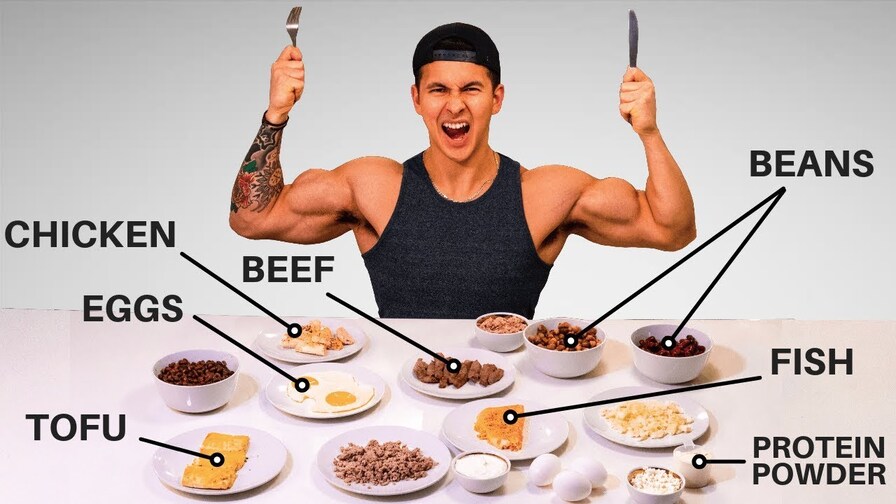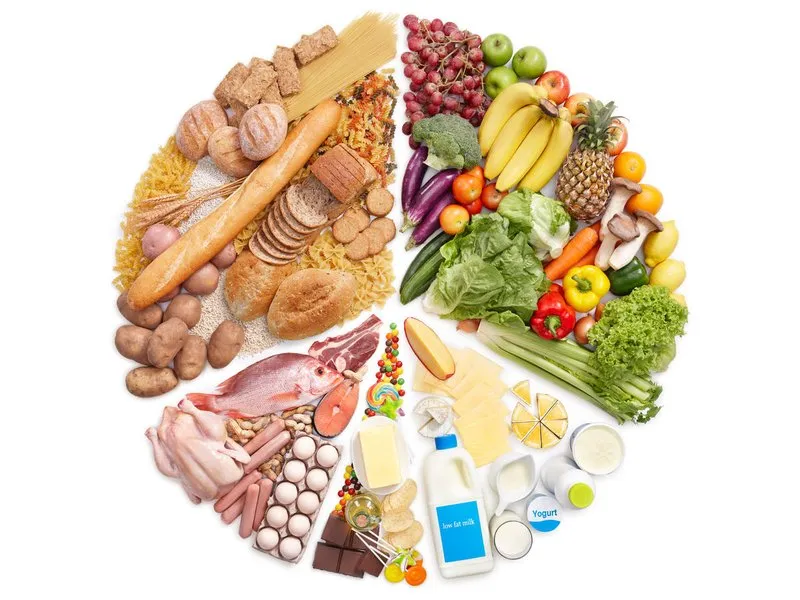The 7 Foods You Should Eat Every Day for a Longer, Healthier Life (And 3 to Avoid at All Costs!)
In today’s fast-paced world, maintaining a balanced diet is more important than ever. What you eat can significantly impact your overall health, longevity, and even your quality of life. While there’s no single magic food that guarantees good health, incorporating certain nutrient-rich foods into your daily diet can set you on the path to a longer, healthier life. Equally important is knowing which foods to avoid. In this article, we’ll explore seven powerhouse foods that you should eat every day and highlight three that you should steer clear of to protect your health.
The 7 Powerhouse Foods You Should Eat Every Day
1. Leafy Greens: The Nutrient Powerhouses
Why You Need Them: Leafy greens like spinach, kale, and Swiss chard are packed with essential vitamins, minerals, and antioxidants. They are rich in vitamin K, which is crucial for bone health, and folate, a B-vitamin that supports cell function and tissue growth.
Health Benefits:
- Reduced Risk of Chronic Diseases: The high levels of antioxidants in leafy greens help protect against heart disease, cancer, and other chronic illnesses.
- Enhanced Brain Function: Regular consumption of leafy greens has been linked to slower cognitive decline and better memory as you age.
- Improved Digestion: The fiber content in greens promotes healthy digestion and supports weight management.
How to Incorporate: Add a handful of spinach to your morning smoothie, toss kale into your salads, or sauté Swiss chard with garlic as a nutritious side dish.
2. Berries: The Antioxidant-Rich Superstars
Why You Need Them: Berries such as blueberries, strawberries, and raspberries are bursting with antioxidants, particularly vitamin C and flavonoids. These nutrients help protect your cells from oxidative stress and inflammation.
Health Benefits:
- Heart Health: Berries are known to lower blood pressure and cholesterol levels, reducing the risk of heart disease.
- Cancer Prevention: The high levels of antioxidants in berries help neutralize free radicals, which can cause cancer.
- Skin Health: The vitamin C in berries supports collagen production, keeping your skin firm and youthful.
How to Incorporate: Enjoy a bowl of mixed berries as a snack, blend them into smoothies, or sprinkle them over your breakfast cereal or yogurt.
3. Nuts and Seeds: The Tiny Nutritional Powerhouses
Why You Need Them: Nuts and seeds like almonds, walnuts, chia seeds, and flaxseeds are rich in healthy fats, protein, and fiber. They also provide essential nutrients like magnesium, zinc, and vitamin E.
Health Benefits:
- Heart Health: The healthy fats in nuts and seeds help lower bad cholesterol and improve heart health.
- Weight Management: Despite being calorie-dense, nuts and seeds can help with weight loss by keeping you full longer.
- Brain Health: Omega-3 fatty acids, particularly in walnuts and flaxseeds, support brain function and reduce the risk of neurodegenerative diseases.
How to Incorporate: Add a handful of nuts or seeds to your morning oatmeal, use nut butter as a spread, or sprinkle seeds over salads for an added crunch.
4. Fatty Fish: The Omega-3 Powerhouse
Why You Need It: Fatty fish like salmon, mackerel, and sardines are among the best sources of omega-3 fatty acids, which are essential for heart and brain health.
Health Benefits:
- Heart Health: Omega-3s help reduce inflammation, lower blood pressure, and decrease the risk of heart disease.
- Brain Health: Regular consumption of fatty fish is linked to better cognitive function and a lower risk of Alzheimer’s disease.
- Eye Health: Omega-3s also support eye health, reducing the risk of age-related macular degeneration.
How to Incorporate: Aim to eat fatty fish at least twice a week. Grill, bake, or poach the fish for a delicious and heart-healthy meal.
5. Whole Grains: The Fiber-Rich Foundation
Why You Need Them: Whole grains like quinoa, brown rice, oats, and barley are rich in fiber, vitamins, and minerals. Unlike refined grains, whole grains contain all parts of the grain, providing more nutrients.
Health Benefits:
- Digestive Health: The fiber in whole grains promotes healthy digestion and regular bowel movements.
- Weight Management: Whole grains can help with weight management by keeping you fuller for longer.
- Lower Risk of Chronic Diseases: Regular consumption of whole grains is associated with a lower risk of heart disease, type 2 diabetes, and certain cancers.
How to Incorporate: Replace refined grains with whole grains in your diet. Start your day with oatmeal, use quinoa as a base for salads, or choose whole-grain bread and pasta.
6. Yogurt: The Probiotic Powerhouse
Why You Need It: Yogurt is a great source of probiotics, the beneficial bacteria that support gut health. It’s also rich in calcium, protein, and vitamin B12.
Health Benefits:
- Gut Health: Probiotics in yogurt help maintain a healthy balance of bacteria in your gut, improving digestion and boosting immunity.
- Bone Health: The calcium and vitamin D in yogurt support strong bones and reduce the risk of osteoporosis.
- Weight Management: High in protein, yogurt can help keep you full and satisfied, aiding in weight management.
How to Incorporate: Enjoy yogurt as a snack, use it as a base for smoothies, or add it to your breakfast with some fruit and nuts.
7. Olive Oil: The Heart-Healthy Fat
Why You Need It: Olive oil is a staple of the Mediterranean diet and is loaded with monounsaturated fats and antioxidants.
Health Benefits:
- Heart Health: Olive oil helps reduce inflammation and lowers the risk of heart disease by improving cholesterol levels.
- Anti-Inflammatory Properties: The antioxidants in olive oil, particularly oleocanthal, have strong anti-inflammatory effects.
- Cancer Prevention: Some studies suggest that the compounds in olive oil may reduce the risk of certain cancers.
How to Incorporate: Use olive oil as your primary cooking oil, drizzle it over salads, or use it as a dip for bread.
3 Foods to Avoid at All Costs
1. Sugary Beverages: The Empty Calorie Bombs
Why They’re Bad: Sugary drinks like soda, energy drinks, and even some fruit juices are packed with added sugars and provide little to no nutritional value.
Health Risks:
- Obesity: These beverages are a major contributor to weight gain and obesity.
- Type 2 Diabetes: Excessive sugar intake is a leading cause of insulin resistance, a precursor to type 2 diabetes.
- Heart Disease: High sugar consumption has been linked to an increased risk of heart disease.
What to Do Instead: Replace sugary beverages with water, herbal teas, or sparkling water with a splash of lemon or lime.
2. Processed Meats: The Hidden Health Hazards
Why They’re Bad: Processed meats like bacon, sausages, and deli meats are high in sodium, nitrates, and saturated fats.
Health Risks:
- Cancer Risk: Processed meats have been classified as carcinogenic by the World Health Organization, linked to an increased risk of colorectal cancer.
- Heart Disease: The high levels of sodium and saturated fats contribute to high blood pressure and heart disease.
- Digestive Issues: Processed meats can be difficult to digest and may contribute to digestive disorders.
What to Do Instead: Opt for lean, unprocessed meats like chicken, turkey, or fish, and explore plant-based protein sources such as beans and lentils.
3. Refined Carbohydrates: The Blood Sugar Spikers
Why They’re Bad: Refined carbs like white bread, pastries, and many breakfast cereals are stripped of fiber and nutrients, causing rapid spikes in blood sugar.
Health Risks:
- Type 2 Diabetes: Frequent consumption of refined carbs can lead to insulin resistance and type 2 diabetes.
- Weight Gain: These foods are often high in calories but low in nutrients, leading to overeating and weight gain.
- Heart Disease: Diets high in refined carbs are linked to an increased risk of heart disease.
What to Do Instead: Replace refined carbs with whole grains like quinoa, brown rice, and whole-wheat products to maintain stable blood sugar levels and support overall health.
Final Thoughts: Take Control of Your Diet for a Healthier Life
Incorporating these seven nutrient-dense foods into your daily diet while avoiding the three unhealthy ones can have a profound impact on your health. By making these simple dietary changes, you’ll be taking significant steps toward a longer, healthier life. Remember, small changes can lead to big results, so start today and enjoy the benefits of a nutritious, balanced diet.




